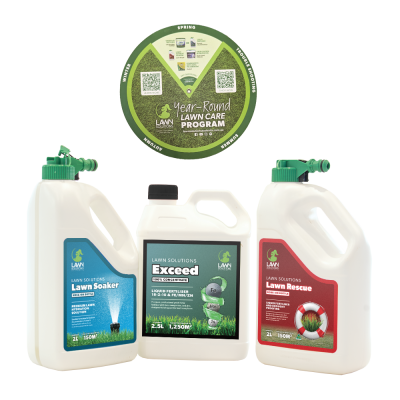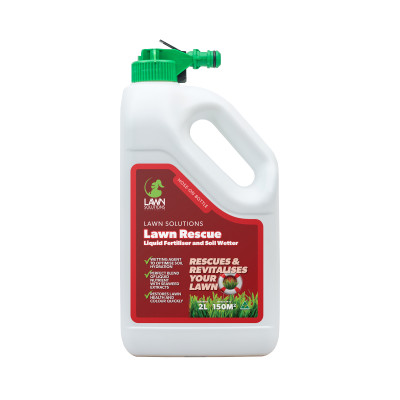Now that your lawn has slowed down in growth, it can become more vulnerable to weed invasions. So, if weeds are growing, it is best to get on top of them now to help prevent their spread. In this blog, we look at common winter weeds, Winter Grass, Bindii, Chickweed, Richardia and Clover, and how to remove them from your lawn.
Skip to: How to remove Winter Grass? How do I remove Bindii? How to remove Chickweed from my lawn? Tips on removing Richardia and How to remove Clover from my lawn.
How to Remove Winter Grass?
Winter Grass is a pesky weed, and if you have it in your lawn this year, it will return almost every winter if left untreated. Getting on top of the winter grass now will help prevent it from spreading further.

To remove Winter Grass, we recommend using a post-emergent herbicide like Amgrow Winter Grass Killer (safe for use on most grasses including, buffalo, couch and zoysia. Not safe for use on kikuyu, rye, and fescue lawns). If you do have a kikuyu lawn, another herbicide option is the Munns Winter Grass Killer.
To help prevent winter grass from returning, we recommend using a pre-emergent herbicide like Oxafert or Oxafert Plus. These products will help stop Winter Grass seeds in the soil from germinating and growing. Pre-emergents are best used just before temperatures are set to cool in your region, but can be used in conjunction with a post emergent herbicide if it has already started to grow in your lawn.
How to Remove Bindii from My Lawn?
Bindii is another weed that starts to grow in winter. In early spring, it goes to seed, producing a prickly seed pod. This weed can be identified by its fern and carrot leaves, growing low to the ground.
As the Bindii will go to seed in spring, it is best to get on top of it now. To remove Bindii from growing in your lawn, use a broadleaf herbicide like All Purpose Weed Control for removal.

How Do I Stop Chickweed from Growing in My Lawn?
Chickweed is another common winter weed that can grow in our lawns. It has paired leaves protruding opposite one another. As temperatures rise in spring, white flowers bloom in clusters at the end of a stem.
If there is only a small amount of Chickweed growing, usually the best and easiest removal method is by hand. If there is a more considerable amount growing, you can look at using a broadleaf herbicide for removal. Something like All Purpose Weed Control, Estate Herbicide or Amgrow Multiweed.

How Can I Remove Richardia from My Lawn?
Richardia, also known as Mexican Clover, is another common weed that can grow in your lawn. It typically flowers in spring through to autumn. This weed also has a large tap root, making hand removal difficult.
To remove Richardia, it is recommended to use a herbicide with Dicamba as the active ingredient (not buffalo safe). Something like Amgrow Multiweed or Kleen Lawn is ideal. If you do have a buffalo lawn, you can try repeated applications of a buffalo safe broadleaf herbicide like All Purpose Weed Control however results may be limited. Alternatively, you can carefully spot treat with a non-selective herbicide like roundup. When using roundup, you will need to be careful to only apply it to the weed and not your lawn as it will harm it also. We recommend using a weed wand to help with an accurate application.

How Do I Remove Clover from My Lawn?
Clover can easily be identified by its oval-shaped leaves and white circular markings. This weed will usually grow in leaflets of 3 and produce either a white or pink flower. Due to its small creeping stem, it can often be difficult to remove by hand.
To remove Clover, a broadleaf herbicide will be able to get on top of it fairly quickly. Something like All Purpose Weed Control Hose-on, Estate Herbicide or Bin Die if you have available. Estate Herbicide 250ml Concentrate has recently been introduced to replace the recently discontinued product Bin Die Concentrate.

If your lawn has a weed growing that we haven’t mentioned, make sure you check out our Ultimate Weed Guide here.


